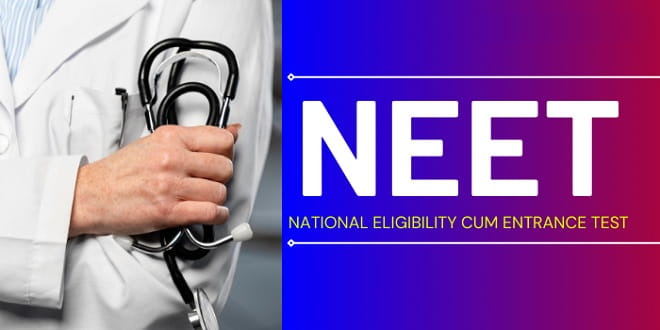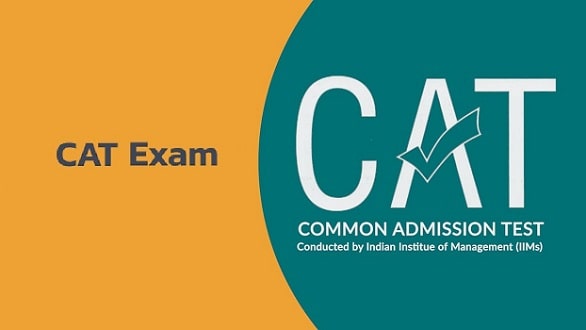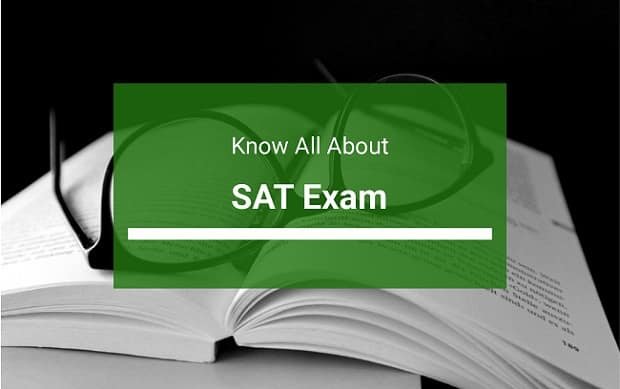Just like UG and PG level courses, PhD level courses have their importance and benefits. In the term of future growth and opportunity, the PhD degree is an ideal option. There are several specializations available for candidates at PhD level. Students can pursue any field at PHD level according to their qualification and interest. The best thing about this degree is that it can be offered full-time and part-time as well by various institutes/colleges/universities in India. Mostly full-time PHD courses take a maximum of 6 years and a minimum of 3 years duration to complete. On the other hand, the part-time PhD level courses can be completed between 4 to 6 years.
By doing this course, candidates will get various career options in the private and public sectors. Additionally, PhD degree holders will have the first preference of reputed organization/firm/company. Candidates with PhD degree mayacquire high salary packages beyond their expectations.Infect, such candidates can apply for the lecturer or professor position at the reputed universities or college.
An individual who is enrolled in any PhD level course studies about their respective field in-depth. The PhD courses are considered as toughest among all degrees and courses. It requires high-level knowledge and a lot of time in research. However, to pursue PhD level course; candidates need to qualify for a national level entrance exam. Just like other PhD courses, PhD in Physics/Theoretical Computer Science/ Neuroscience or Computational Biology has become the most desirable courses which are always in demand.
Candidates who are seeking admission for a PHD programme/Integrated Programme in Neuroscience or Theoretical Computer Science or Computational Biology in one of the reputed research institutes may appear for the JEST entrance exam. In this article, we have mentioned relevant information regarding JEST.

What is the JEST exam?
JEST or Joint Entrance Screening Test is a national level entrance exam conducted by the SERB (Science and Engineering Research Board). Through this exam, candidates will get admission to the prestigious institutions of the country and pursue PhD/Integrated Programme in science and engineering.
To appear for the JEST exam, candidates will fulfil some eligibility requirements which are set by the Science and Engineering Research Board (SERB). It was established under an act of the parliament in the year 2008. Moreover, the JEST exam conducts every year on a rotational basis by the following participating institutes:
- Harish Chandra Research Institutes
- Aryabhatta Research Institutes of Observational Sciences
- Bose Institute
- HomiBhabha National Institute
- International Centre for theoretical sciences
- Indira Gandhi Centre for Atomic Research
- Indian Institute of Astrophysics
- Indian Institute of Science
- Indian Institute of Science Education and Research
- Indian Institute of Science Education and Research, Bhopal
- Indian Institute of Science Education and Research, Thiruvananthapuram
- The Institute of Mathematical Science
- Indian Institute of Space Science and Technology, Kolkata
- Indian Institute of Science Education and Research, Pune
- Indian Institute of Science Education and Research, Mohali
- National Institute of Science Education and Research
- National Centre for Radio Astrophysics
- National Brain Research Centre
- Jawaharlal Nehru Centre for Advanced Scientific Research
- Inter-University Centre for Astronomy and Astrophysics
- Institute for Plasma Research
- The Institute of Mathematical Sciences
- Indian Institute of Space Science and Technology
- Physical Research Laboratory
- Raja Ramanna Centre for Advanced Technology
- Raman Research Institute
- Saha Institute of Nuclear Physics
- SatyendraNath Bose National Centre for Basic Sciences
- TIFR Centre for Interdisciplinary Sciences
- Tata Institute of Fundamental Research
- Variable Energy Cyclotron Centre
- UGC-DAE Consortium for Scientific Research
Eligibility Criteria for JEST Exam
Before applying for the JEST exam, you should fulfil the basic eligibility criteria. Here are the eligibility criteria for different PhD courses:
- For PhD Programme Physics
The following academic qualification required at different institutes:
- At All Participating Institutes – M.Sc. in Physics
- At Indian Institutes of Astrophysics – Masters in Mathematics/Applied Mathematics/Applied Physics /Electronics/Instrumentation/Photonics and Optics
- At Inter-University Centre of Astronomy and Astrophysics – M.Sc. in Physics / Electronics / Applied Mathematics / Astronomy
- At IISc, IMSc, IUCAA, JNCASR, IISER, TIFR- TCIS, etc. – B.Tech or B.E.
- AT SNBNCBS – M.SC. In Applied Mathematics, Biochemistry, Physics, Chemistry.
- At TIER – B.Tech in Engineering Physics will be considered at this institute.
- At IPR – MSC in Physics, Engineering Physics or Applied Physics
- At NISER – M.E./ M.Tech in Applied Physics
- PhD Programme –For Theoretical Neuroscience/Computational Biology/Computer Science
- Neuroscience at NBRC – M.Sc.( Mathematics/Physics), B.E./ M.C.A / B.Tech in Computer Science will be eligible
- Theoretical Computer Science at IMSc – M.Tech / M.Sc. / M.E. in Computer Science will be eligible.
- Computational Biology at IMSc – MCA / M.E. / M.Sc. / M.Tech in any engineering discipline or science. The mathematical skills and good knowledge of biological problems must require being eligible for taking admission to this institute.
- PhD Programme – Integrated M.Sc. / M.Tech
The following academic qualification required at different participating institute:
- At IMSC – B.Sc. ( Physics)
- At SNBNCBS – B.Sc. ( Mathematics / Physics)
- At NISER – B.Sc. (Physics) / B.Tech in Engineering Physics or B.E.
- At IIA – B.E. / B.Sc. ( Mathematics / physics) / B.Tech in Electrical / Engineering Physics / Computer Science and Engineering / Instrumentation / Electronics and Communication / Optics and Photonics
- At TIFR- TCIS and NCRA -TIFR, ICTS-TIFR – B.Sc ( Physics)
- At Bose Institute – B.Sc. (Mathematics / Physics / B.Tech / B.E. will be considered for Integrated PhD.
- At IISER-Pune, NCRA-TIFR, ICTS-TIFR, and TIFR-TCIS – B.Sc. (physics) will be considered.
- Integrated PhD. Programme in Theoretical Computer Science at IMSC
Those who have completed B.E./B.Sc / B.Tech or M.C.A in computer science or have an interest in the mathematical aspects of computer science will get admission to this institute
- Integrated M.Tech – PhD. Programme at IIA
To apply for this course at IIA, you should have passed M.Sc. (Physics / Applied Physics) or Post – B.Sc. Honours in Optics and Optoelectronics or Electronics and Radio Physics.
- Integrated PhD. Programme at IISER. Thiruvananthapuram
Candidates who have completed B.E. or B. Sc. (Physics) or B. Tech. in any discipline from any recognized university with minimum aggregate can apply for an integrated doctorate programme at this institute.
- M.Sc. Programme at HRI
To apply for M.Sc. Programme at HRI, you should have completed B.E. or B. Sc. (Physics)/B.Tech. Degree in any discipline from any recognized university
Note – M.Sc. programme in physics is started in 2017 at HRI (Harish Chandra Research Institute). Although the doctorate course in physics is discontinued from 2017.
Selection Procedure of JEST Exam
The Jest selection procedure will comprise two stages. Let’s discuss them:
Stage 1 – It is a primary stage where candidates will have appeared for the common entrance exam. It is an offline paper (pen and paper mode).
Stage 2 –After qualifying primary stage, shortlisted candidates will be called for the interview round at the participating institutes and that why this stage is called the final stage or final round.
JEST Exam Pattern and Syllabus
Before start preparing for JEST, candidates should about their exam pattern and syllabus. Here the pattern and complete syllabus of JEST is below-mentioned:
- The JEST question paper will be divided into three parts i.e. Part A, Part B and Part C.
- The JEST question paper will be printed in English language.
- The JEST exam will be conducted offline mode.
- The duration of this entrance exam is 3 hours.
Number of Questions:
Part A – 15 Questions
Paper B – 10 Questions
Paper C – 25 Questions
Marking Scheme:
For Part A – for each correct response 3 marks will be rewarded and 1 mark will be deducted for each wrong response.
For Part B – for each correct response 3 marks will be rewarded and there is no negative marking for wrong response.
For Part C – For each correct response 1 mark will be rewarded and 1/3 mark will be deducted for each wrong response.
Syllabus of JEST exam
This syllabus of JEST Physics involves various topics including Electromagnetism and Optics, Quantum Mechanics, Electronics and Thermodynamics and Statistical Physics, Classical Mechanisms and many others. For a complete syllabus, you can check the official website of JEST.
Application Fees for JEST exam
Candidates are advised to go through the category-wise JEST application fee while applying for the JEST exam. Here the complete detail regarding the JEST application fee is below mentioned:
- Application fee for General candidates – INR 400
- Application fee for SC/ST candidates – INR 200
- Application fee for female candidates – INR 200
- Application fee for female candidates from SC/ST category – NIL
How to apply for the JEST Exam
By using few steps, candidates can apply themselves for the JEST exam. Here the all steps are below mentioned:
- Open a web browser on your PC.
- Next, Open the official website ( https://www.jest.org.in)
- Then click on the link – Register to appear for the exam
- You have to fill in the required details for registration
- After filling in all details, you will receive a registration ID and password at your registered phone number or email.
- Next, login into the home page by using your id and password
- Fill rest of the details
- Scanned your photo and signature
- Next, Make payment via debit card/net banking/credit card.
- Then submit it and don’t forget to take a printout of your application form for future purpose.

Rahul Kumar is a passionate educator, writer, and subject matter expert in the field of education and professional development. As an author on CoursesXpert, Rahul Kumar’s articles cover a wide range of topics, from various courses, educational and career guidance.



